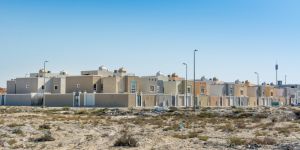The Hajj, is a pilgrimage to Mecca (referred to as Makkah by the Arabs). It is currently the largest annual pilgrimage in the world and is the fifth pillar of Islam, a moral obligation that must be carried out, at least once in a lifetime by every able-bodied, healthy, Muslim who has the financial means to fulfil it.
The Hajj, within all its rituals, acts, and requirements, is a demonstration of the solidarity of the Muslim people, and their submission to their Creator, Allah. It also requires great physical, mental, and emotional sacrifice in carrying out all of its mandated acts that need to be performed correctly in order to fulfill it.
The pilgrimage occurs from the 7th to the 13th day of the twelfth Islamic Hijri Month of Dhul Hijjah the last month of the Islamic Lunar Calendar.
This year, 2009, the Islamic Lunar year of 1430, Hajj begins on November 24 and will end on November 30.
The Hajj is associated with the life of the Islamic prophet Muhammad, 7th Century BC, who brought Islam to the world and who was born in Makkah and died in Madinah, in Saudi Arabia.
The ritual of the pilgrimage, however, is considered by Muslims to stretch back many thousands of years to the time of Prophet Abraham (Ibrahim in Arabic).
Millions of Pilgrims commence the pilgrimage in Makkah and join the processions of multitudes of people from across the globe, coming from every walk of life, Princes and Peasants, all dressed in the white two piece unstitched towels, called Ihram, which represent simplicity, humility, and equality. On establishing this garb, at the point of entry at the many border entry points to Makkah referred to as the Mikat, with the intent of pilgrimage the individual has to conform to a predefined and specific code of conduct and purity, where he or she cannot clip any hair on the body, pair nails, or engage in conjugal relations with their spouse. This remains in force until the tenth day when the pilgrim removes his garb and dons normal clothing.
Each pilgrim starts the Hajj with the self proclaimed intention of executing it, which is the primary requirement before commencement of the journey. They then walk counter-clockwise, seven times around the Kabah, the cube-shaped brick building, draped in black satin cloth, which has been rvealed in the scripture to be the Muslim direction of prayer; runs bback and forth between the two hills of Al-Safah and Al-Marwa, signifying the running of Prophet Abrahams wife, Hagar, in search of water for her son Ishmael (Ismail in Arabic) when she was left in the desert by the Command of God. They then drink water from the Well of Zamzam, located underneath the Kaaba, and then moves to the plains of Mina on the eighth day of the month of Dhul Hijjah. The ninth day is spent on Mount Arafat where the pilgrims stand in vigil and offer noon prayers in congregation which is followed by a sermon by the Head of the Saudi Arabian Religious Authority (Ulema); then moves to a plain called Muzdalifah by sunset to spend the night there in the open and also pick up pebbles to enact a ritual on the following three days. The tenth day, the Day of Eid (festival) the pilgrim rejoices the culmination of the state of purity by taking off the Ihram clothing and donning normal clothes as before. They then move to the three pillars where they throw the pebbles collected at Muzdalifah at each of them on three consecitive days, re-enacting the act of Prophet Ibrahim who did so when Satan was trying to dissuade him from obeying the Commands of God. The pilgrims then shave their heads, perform a ritual of animal sacrifice, the meat of which are distributed to the poor across the globe after freezing and shipping by Saudia, and celebrate the three day global festival of Eid Al Adha, or the Festival of Sacrifice.
As of 2008, about three million pilgrims participated in this annual pilgrimage. This year too it is expected that a similar number may come even though a cautious warning about Swine Flu and its precautions has been circulated by the Saudi authorities worldwide.
Most pilgrims who come from far off lands usually visit the Mosque of the Prophet Muhammad in the city of Madinah after completion of the pilgrimage although that is not a mandatory requirement of the pilgrimage.
Muslims believe that they are cleansed of all their sins on earth if their Hajj is completed successfully and Accepted by God so that they begin life as a new born when they return home after the pilgrimage.
 Everything you need to know as an expat woman in Saudi Arabia
Everything you need to know as an expat woman in Saudi Arabia Dating in Saudi Arabia
Dating in Saudi Arabia Getting married in Saudi Arabia
Getting married in Saudi Arabia Driving in Saudi Arabia
Driving in Saudi Arabia Moving to Saudi Arabia with your pet
Moving to Saudi Arabia with your pet Accommodation in Dammam
Accommodation in Dammam Accommodation in Yanbu
Accommodation in Yanbu Childcare in Saudi Arabia
Childcare in Saudi Arabia


